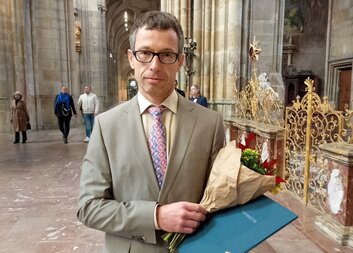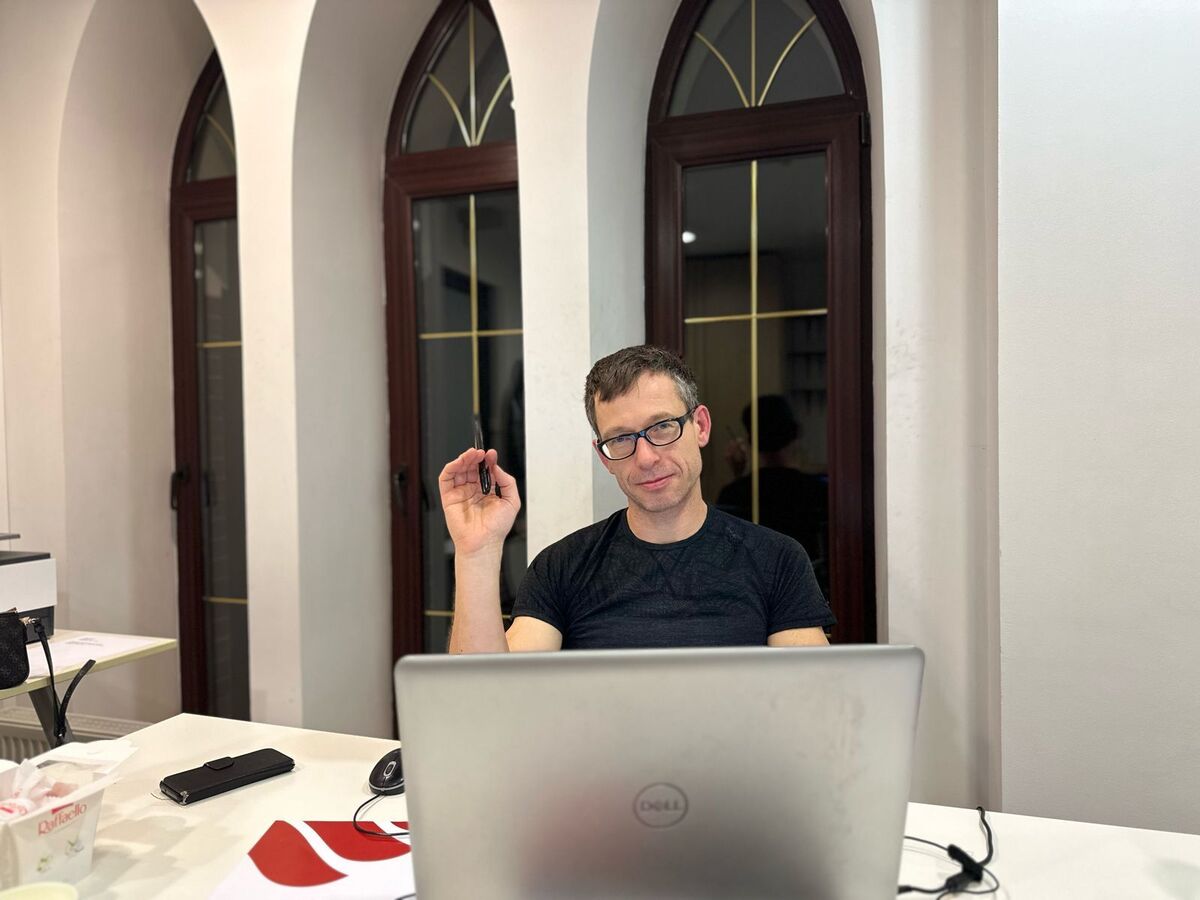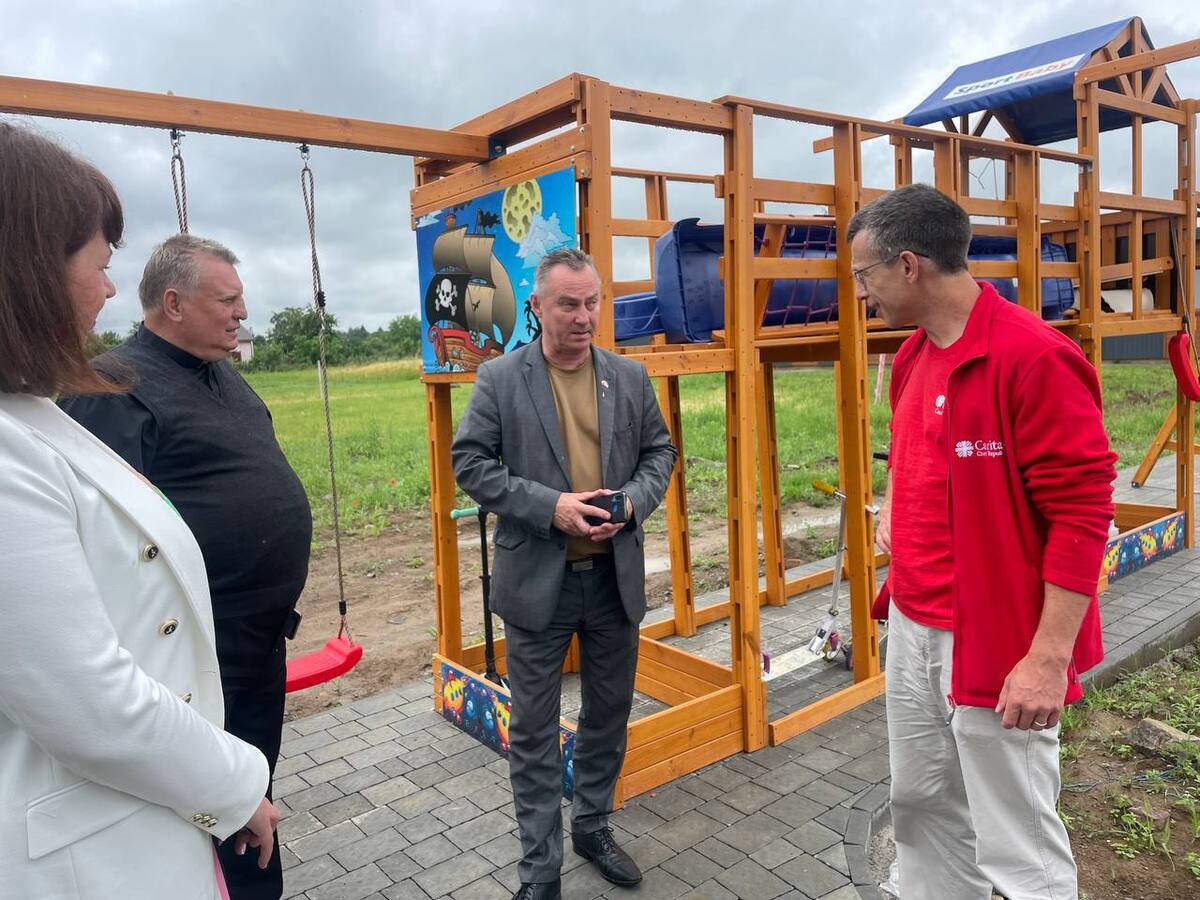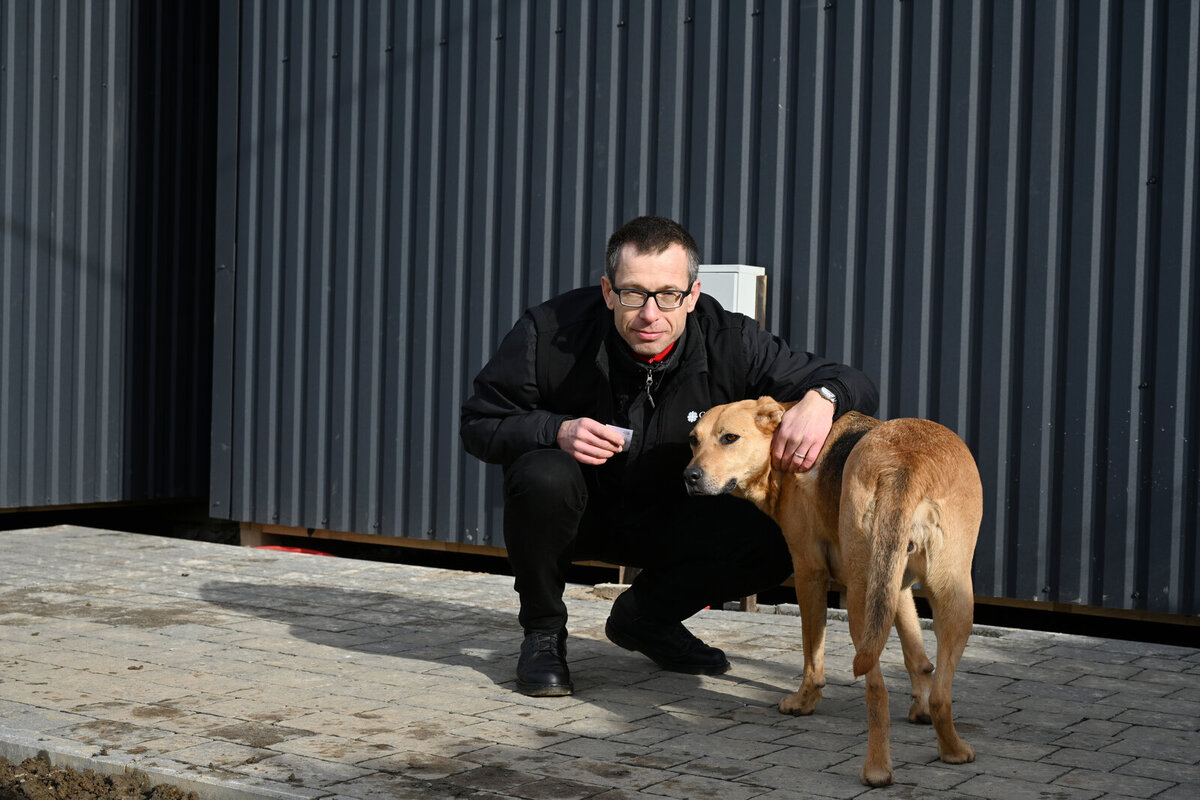Evžen Diviš has been working at Caritas Czech Republic for over 15 years. In this interview, he reveals what the role of a regional manager in the Humanitarian Aid and Development Cooperation Department entails and shares some of the most profound experiences from his work-related travels. What does Evžen Diviš love most about his job? How does he cope with stress? And what does he see as the greatest challenges in providing humanitarian aid?
You have been working at Caritas Czech Republic for over 15 years. How did you get into the humanitarian and development sector?
I actually got into the humanitarian and development sector by chance. Even before joining Caritas Czech Republic, I had been thinking about working in this field.
I learned about the vacancy at Caritas Czech Republic, where I am now, from a colleague who was leaving at the time. I was looking for a job that offered a stable and high-quality working environment, and I believed I could find it at Caritas Czech Republic. I am glad this belief proved to be true. I have now been here for more than 15 years.
You work as a regional manager in the Humanitarian Aid and Development Cooperation Department. What does this job involve?
A significant part of my work involves administration, but I also participate in several online meetings during the day, often with colleagues from our international offices as we prepare various projects together. When a new project is being developed, I process a large amount of data and information. During business trips, I visit places where Caritas Czech Republic helps people in need and attend meetings.
You recently received the Caritas Award. What does this recognition mean to you? What are you most proud of in your work?
Receiving the Caritas Award was a huge surprise - I was not expecting it at all. This recognition means confirmation to me that my work over the past 15 years has been meaningful and well-done. It is also proof that my efforts have been noticed, not just by those around me but also by the organisation itself.
I am most proud of our achievements at the beginning of the war, when we managed to establish a programme in Ukraine from scratch. Another significant accomplishment is our development in Georgia. Initially, we worked there only through partner organisations, but in 2015 we opened our own office and began building an excellent team. Many of the team members have been there since the very beginning and are doing great work.
In Georgia, we have also achieved several important goals, such as improving primary healthcare, including cancer diagnostics, developing an online vaccination registration system during the COVID-19 pandemic, and enhancing services for people with autism. However, these successes are the result of the efforts of many people.
You have witnessed many significant changes and milestones. What do you think has changed at Caritas Czech Republic since you started working here?
Since I started at Caritas Czech Republic, the organisation has significantly advanced in terms of professionalism and the quality of its work. Previously, we often operated in countries without having our own offices there, relying entirely on local partner organisations. Today, we have our own offices and staff in nearly all locations, which I see as a major advantage. It allows us better control over projects and quicker responses to potential problems.
In recent years, we have also introduced our own PR team, which is now part of our foreign communications department, and established a separate finance department. Overall, the work is now divided much more efficiently, thanks to the expansion of our team. Every task has a clearly assigned person responsible.
It is clear that you are passionate about your work. What do you like most about it?
What I enjoy most about my work is the freedom to organise my time. I don’t have fixed working hours, and it doesn’t matter when I complete my tasks as long as they are done well and on time. I also appreciate the creativity I can bring to new project preparations. I value the variety in my job – it is not overly monotonous or routine. Additionally, I am grateful for the friendly team and pleasant atmosphere at Caritas Czech Republic.
Part of your job involves travelling for work. Do you sometimes visit the people Caritas Czech Republic supports?
Occasionally, but not very often. I used to travel more frequently for work and had more opportunities to meet the people Caritas Czech Republic supports. When I started, I was responsible only for Mongolia, which allowed for more frequent trips and closer contact with the local community. I once visited Mongolia as the head of our local office, where personal contact was an essential part of the job. Nowadays, there isn’t as much time for business trips, but when I do get the chance, meeting the people we help is always a rewarding experience.
Where was your most recent business trip, and what did you focus on there?
My most recent trip was to Moldova, where I spent five days. I focused mainly on administrative work and attended several meetings related to our projects there. I also had the opportunity to meet the bishop and the director of Caritas Czech Republic in Moldova. Additionally, I had discussions with an embassy representative responsible for development cooperation and the new ambassador to Moldova.
When you first started working at Caritas Czech Republic, you probably had some expectations about how the organisation operates and what to expect. Was there anything that surprised you?
One of the biggest surprises for me was how challenging it is to find the right people to work in the humanitarian and non-profit sectors, both locally and internationally. I feel that when I started at Caritas Czech Republic, there was much more interest in this kind of work than there is today.
Work in a humanitarian organisation can be demanding and stressful. How do you cope with the stress and challenges that come with the job?
In my role, I don’t experience as much stress or pressure as some of my colleagues, especially those who work in conflict zones where the stakes are incredibly high. However, when I feel overwhelmed, physical activity helps me a lot—I enjoy running, cycling in the warmer months, and practising Krav Maga. I also like going to the mountains to clear my head and take a break from daily responsibilities.
The field of humanitarian aid and development cooperation faces many challenges today. What do you see as the biggest ones?
In humanitarian aid and development cooperation, I see several major challenges. When dealing with natural disasters like earthquakes, it’s usually clear how to provide effective help. However, it’s much more complicated with human-made crises, such as wars. These situations are often politically and logistically very complex.
Another significant issue is the limited financial resources available for humanitarian and development aid. This is closely linked to the difficulty of delivering aid in certain countries. Getting help to those in need is sometimes risky, very expensive, and in some cases, even impossible. Measuring the impact of aid in politically unstable countries is also a challenge.
Addressing these challenges is certainly not easy. How do you think Caritas Czech Republic will continue to evolve in the field of humanitarian aid and development cooperation? And how do you see your own future at Caritas Czech Republic?
I believe and hope that our department will continue to deliver high-quality work as it has done so far. However, I am aware that the availability of financial resources for humanitarian and development aid may decrease, which could affect our activities. Despite these potential obstacles, I am confident we will find ways to continue helping those who need it most.
From a broader perspective, my wish is that our work would one day not be needed at all—that the world would be such that people could help themselves, and crises would no longer exist. Unfortunately, I know the world is not perfect, and there will always be people in need of our help.
As for my personal vision, I would love to see Caritas Czech Republic resume its work in the Balkans. This region is very close to my heart—I have a strong connection to it and have always felt drawn to it. I believe our work there could be highly beneficial again. Balkan countries are culturally close to us, and we understand the challenges they face. I feel there is still room for effective help and meaningful projects.
That i’s a beautiful vision. Do you have a story or experience from your work or travels with Caritas Czech Republic that you woul’d like to share?
One of the most profound experiences was visiting Ukraine. I have a personal connection to this country, having visited it many times before the war, and its current situation deeply affects me. It was very emotional to see lists of the fallen displayed in public spaces across the country. Seeing the names of those who lost their lives reminded me of the immense impact the war has on the daily lives of the local people.
On the other hand, I am thrilled with the great work we have accomplished in Ukraine. We have managed to repair schools, healthcare facilities, and other buildings serving as shelters for refugees. I greatly appreciate the work of our team on the ground. They are doing an excellent job, as seen in both the results and the recognition they receive from the Ukrainians themselves. The feeling that our help has a tangible impact is incredibly valuable to me.
You mentioned that physical activity helps you cope with stress. Do you have any other hobbies you enjoy when you are not working?
Yes, in addition to the sports I mentioned, I enjoy reading. I often read fiction, but I am also interested in books on social sciences, such as history, sociology, or politics.
The humanitarian and development sector continues to offer opportunities for those who want to help and make a difference. Is there anything you would like to say to people considering a career in this field?
To those thinking about working in the humanitarian and development sector, I would say that this work is somewhat different from what you might imagine. It’s not all constant adrenaline or adventure. Sometimes, it’s routine work that requires a pragmatic and rational approach. You can not solely rely on passion. On the other hand, this work is varied and immensely rewarding.
People who want to work in this sector should be compassionate, flexible, able to improvise, creative, responsible, and independent. This work rewards you with tangible results that make a difference where it is most needed. Additionally, it offers the opportunity to use English language regularly, which I see as a significant benefit.
Formal education in this field is not essential. What matters most is what you can do, your attitude, and your willingness to learn new things. If this field interests you and you have these qualities, don’t hesitate to give it a try. The reward is the sense that your work truly makes a difference.













